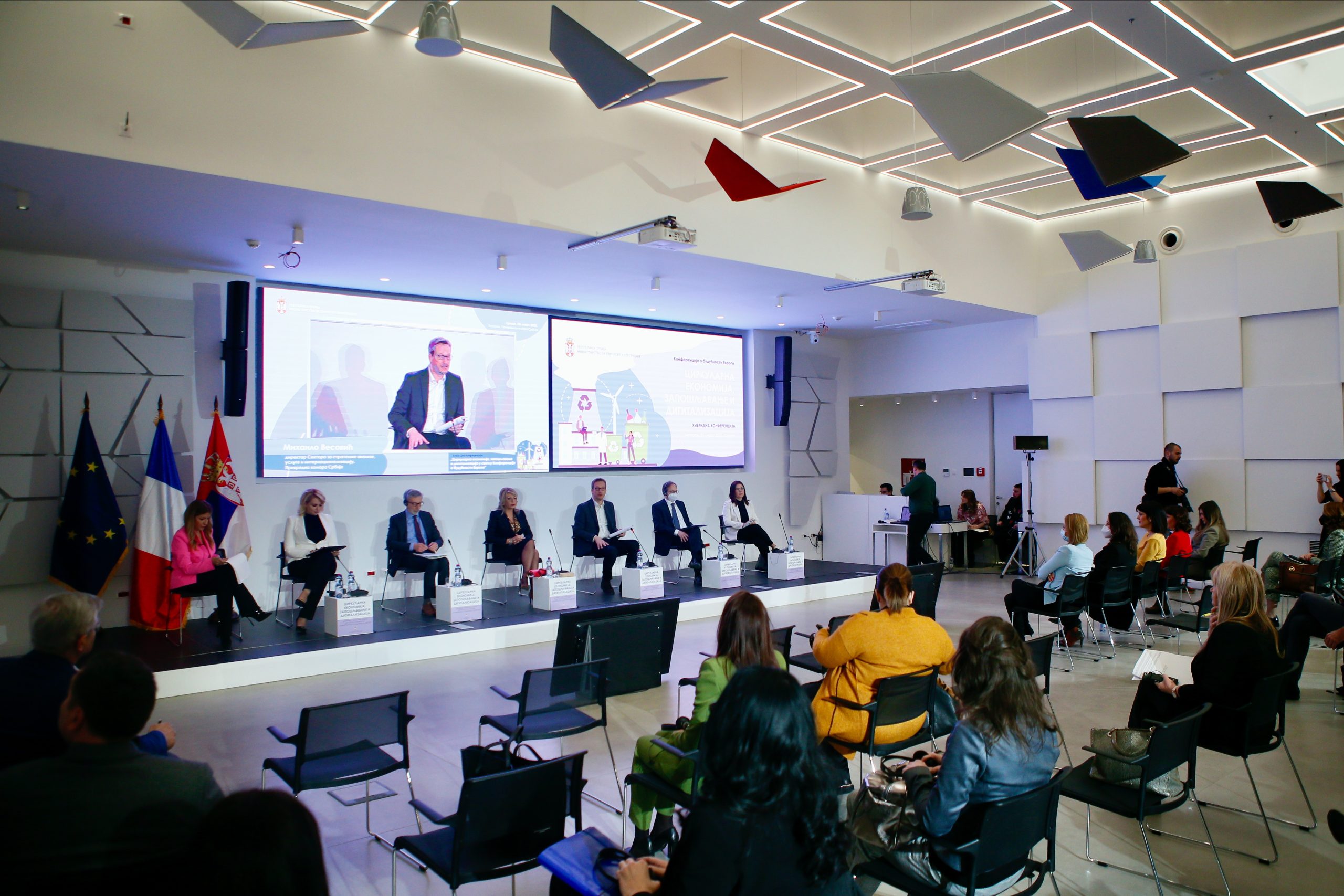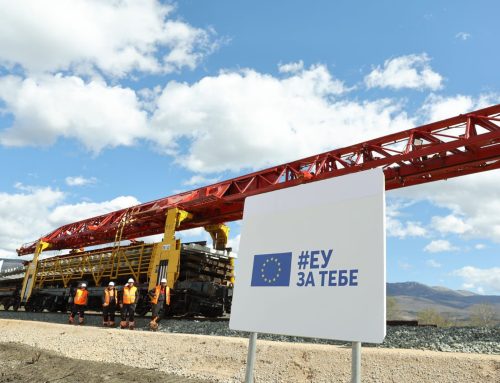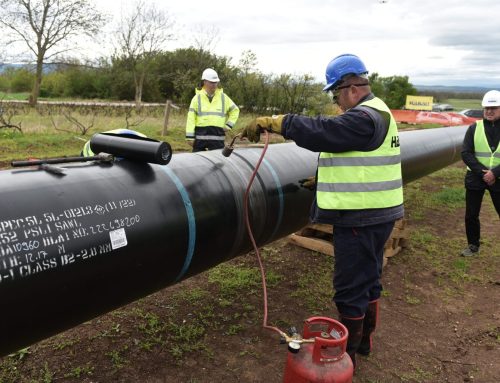The circular economy saves resources, creates new jobs, reduces pollution, promotes innovation, and reduces the cost of production. Reduction of carbon dioxide (CO2) output, fighting against climate change and promoting climate-neutral growth, as well as involving all citizens in this process, are some of the conclusions from the conference “Circular Economy, Employment and Digitalisation” organised by the Ministry of European Integration and the Serbian Chamber of Commerce.
The introductory address of the conference was addressed by the Ambassador of the European Union to Serbia, Emanuele Giaufret, Minister for European Integration, Jadranka Joksimović, Minister of Labor and Employment, Veterans and Social Affairs, Darija Kisić Tepavčević, Ambassador of France, H.E. Pierre Cochard, Coordinator of the National Convent, Natasa Dragojlović, and Mihajlo Vesović, advisor to the President of the Serbian Chamber of Commerce.
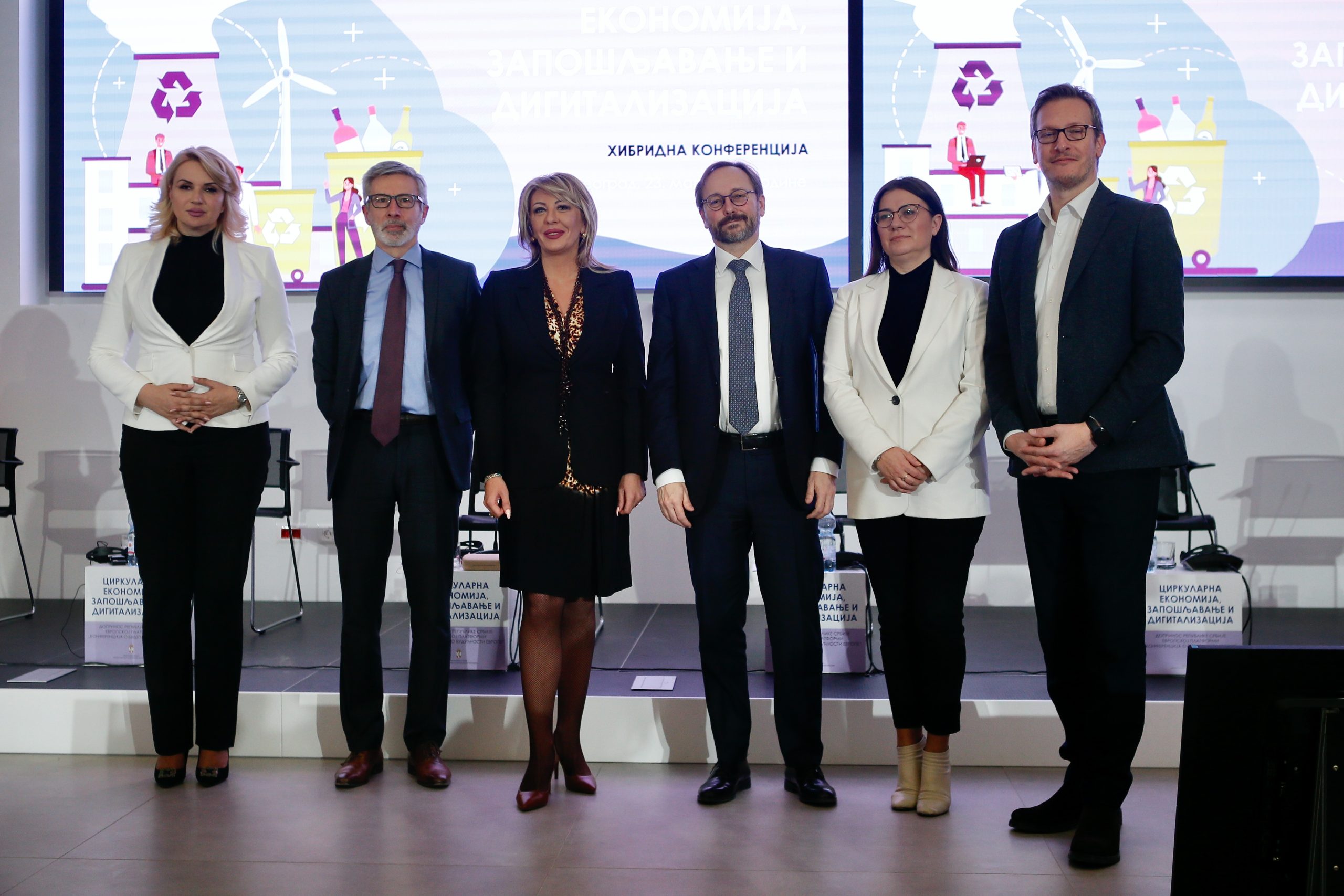
The European Union has approved a package to support regional connectivity, the digital agenda, the fight against climate change and improvements in the use of energy from renewable sources.
“This conference comes about a month after we launched an investment package worth 3.2 billion euros to support 21 projects in the field of transport, digital data, climate and energy in the Western Balkans. This is the first large package within the Economic and Investment Plan, which will mobilise up to 30 billion euros of investments, as a combination of grants, preferential loans and guarantees, “said Ambassador Giaufret.
” The European Commission adopted the New Circular Economy Action Plan (CEAP) in March 2020. It is one of the main building blocks of the European Green Deal, Europe’s new agenda for sustainable growth on which we also base ourselves with the Western Balkans partners. The EU’s transition to a circular economy will reduce pressure on natural resources and will create sustainable growth and jobs. It is also a prerequisite to achieve the EU’s 2050 climate neutrality target and to halt biodiversity loss. We want to help the Western Balkans deal with future systemic shocks, build faster and more sustainable ties, decarbonise the economy, ensure a secure energy supply that can facilitate growing economies, create sustainable business opportunities and create conditions for society to thrive,” concluded Ambassador Giaufret.
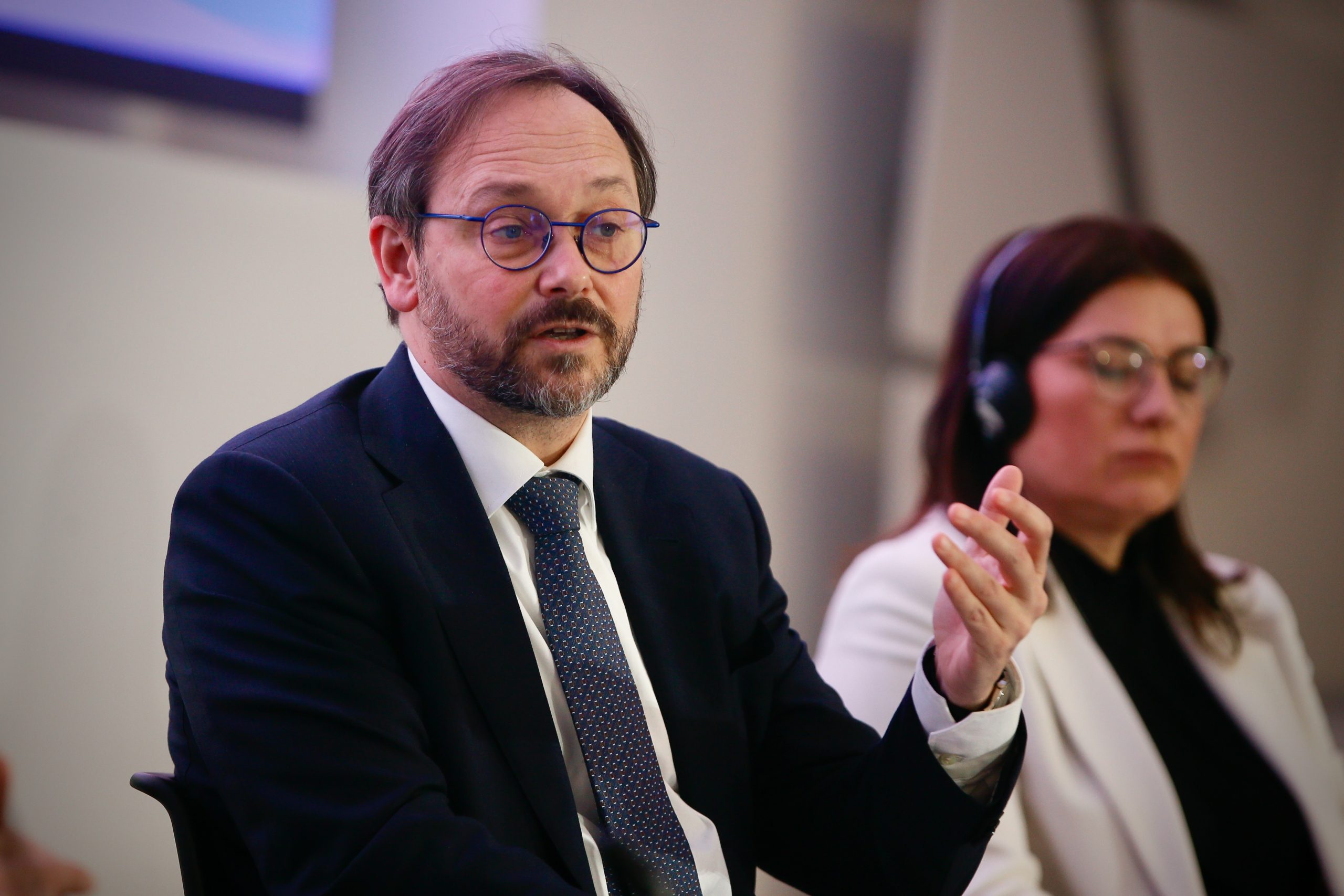
Minister for European Integration Jadranka Joksimović stated that today’s gathering is organised by the Ministry, a platform on which state institutions, business community, non-governmental sector, academic community, as important segments of society, have the opportunity to present their vision of the future of the European Union and Serbia.
“The topics of digitalisation, green agendas and employment are those that every responsible government must actively and with dedication deal with, just like the European Union itself, especially in the time of new geopolitical and geoeconomic circumstances in the modern world. The policy of sustainable development is part of the agenda of the EU accession process, strategically and complexly encompassing all elements of progress and transformation of every society, including ours. By acting in this way, both the EU and we, as a candidate country, contribute to the common sustainable future of Europe, in the political, economic, health, environmental and every other aspect, “said Joksimović.
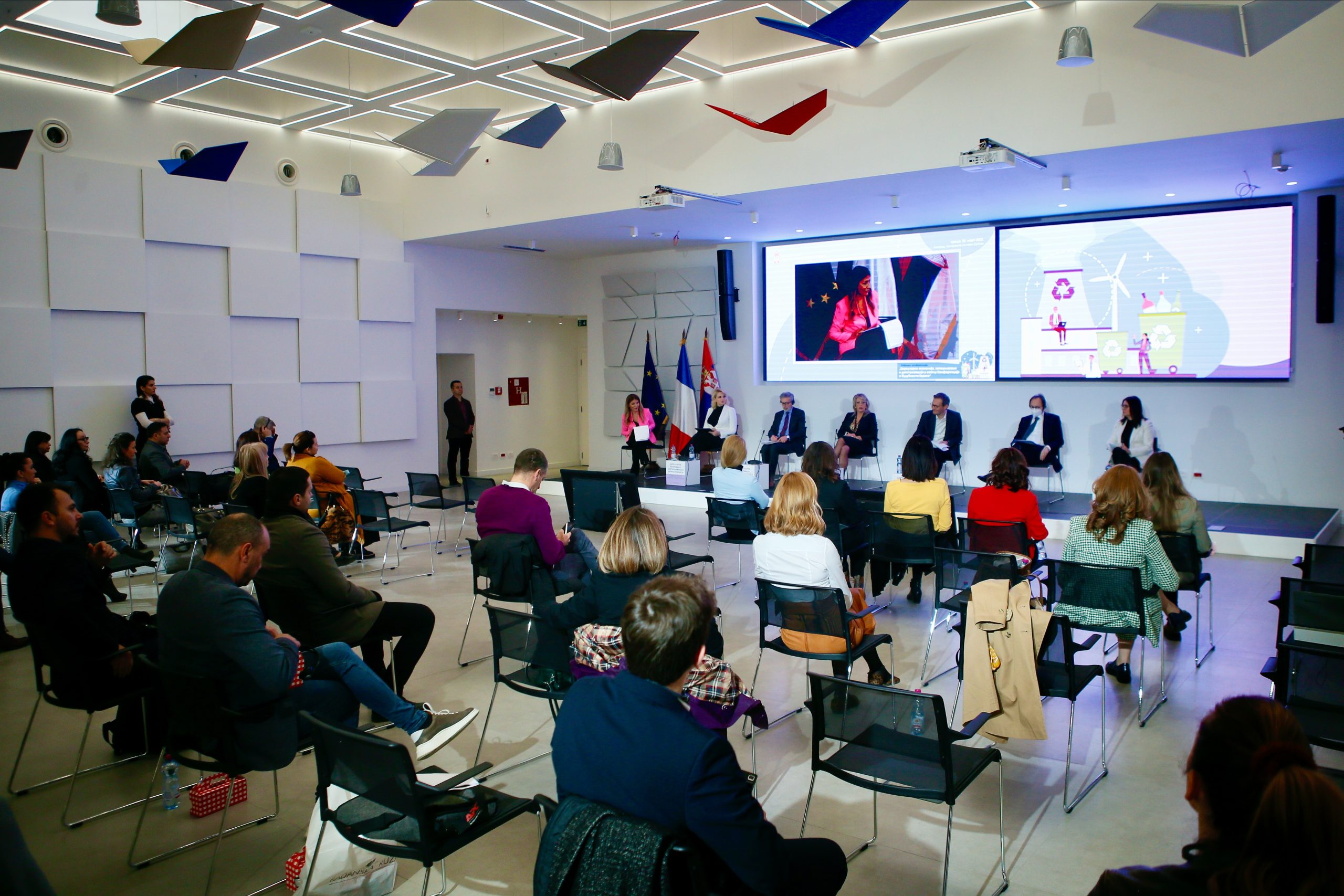
The path to a circular economy is not easy and innovations are necessary, but also the responsibility of both economic entities and all social actors who need to participate in this process. Everyone has a role to play in this process, local governments need to establish a legislative framework, civil society and citizens need to embrace and participate in the transformation, and business people need to implement new technologies and production models that will contribute to preserving the environment and resources.

